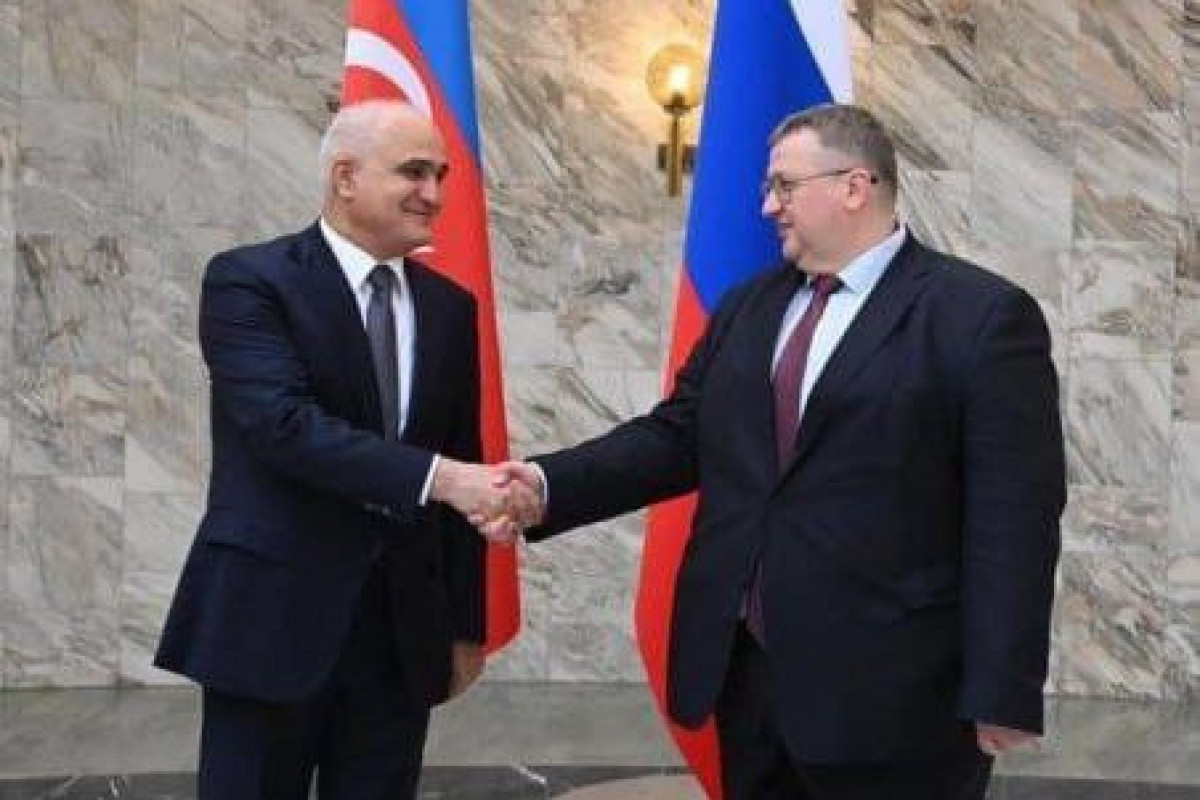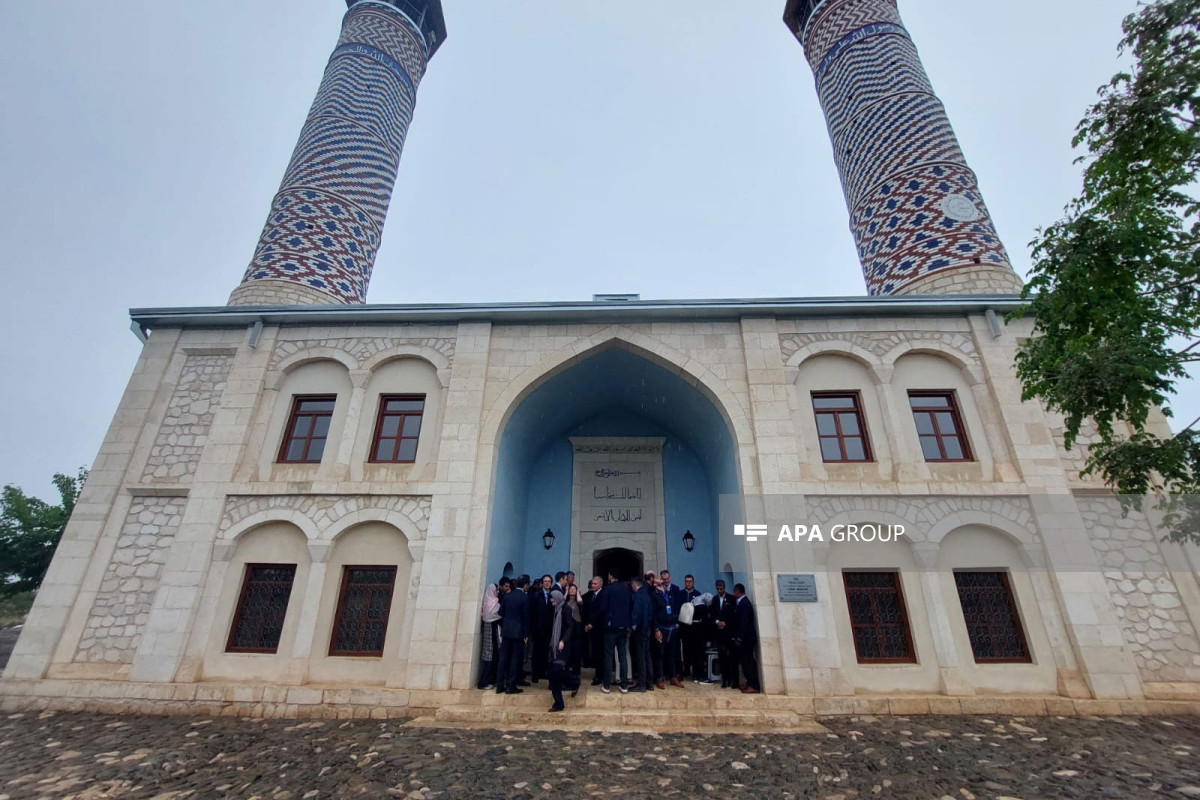Renowned Armenian-origin historian Philip Ekozyants has long been a thorn in the side of Armenian nationalists. Ekozyants was born in Ukraine and currently resides in Russia. He is engaged in research on the "ancient history" of Armenians. The historical facts he has gleaned from archives convincingly demonstrate the origins and purpose behind the modern-day idea of the "Armenian question" and "Armenian genocide."
APA's Moscow correspondent interviewed Philip Ekozyants
- Philip Vartanovich, you are one of those rare specialists of Armenian nationality who objectively study the history of Armenia. Therefore, we would like to hear your opinion on the alleged 'Armenian genocide.' Do you think the events of 1915 occurred as Armenians claim?
- I have spoken extensively about the so-called 'Armenian genocide.' I have discussed who benefits from it and explained why it cannot be called a 'genocide.' Because the term 'genocide' emerged in international law in the 1940s. 'Genocide' is a vague concept in international law. No one has yet been able to provide a full explanation of this term. The numbers that Armenians cite in connection with the genocide are also false. The more lies there are, the more readily they are believed. They claim that 1.5 million Armenians were killed. Firstly, there were never that many Armenians here. In the 17th century, in the Ottoman Empire, located on three continents, there were only 20,000 Armenian houses. This roughly equates to about 100,000 Armenians. It is impossible for Armenians, the vast majority of whom lived in impoverished conditions, to have increased more than tenfold in two centuries. They could never have increased by several million, of which supposedly 1.5 million were subjected to genocide. Unfortunately, all of this is a game aimed at making these people enemies. This game has happened, and people have become enemies. Everyone has gone to their national quarters and hates each other. I have been to Türkiye and worked in Istanbul in 2004. Honestly, I have never seen any hatred towards Armenians there.
- Who do you think benefits from constantly bringing up the issue of the "Armenian genocide"?
- It's clear why the topic of "genocide" is being inflated. It has its objectives, and among those objectives, there is no prosperity for nations and ordinary people. The goal is manipulation; it's easier to manipulate and control someone who hates. In Türkiye, there was a trial in 1918-1919 for those responsible for the deaths in the events of 1915. The Turkish government executed the culprits. According to the Turkish government, these individuals were specifically accused of crimes not only against Armenians... You know, there was also a civil war in Türkiye at that time. This period was very painful for Türkiye because Türkiye was fighting on two fronts and also facing internal civil war... Russia was also experiencing a civil war, but unlike Türkiye, Europe did not attack Russia. Türkiye was being attacked from all sides. At that time, there were still many Armenians in Türkiye who became patriots of Türkiye, and today these Armenians do not agree with Armenia's position. I repeat, this is a question where it's necessary to show how things started. In my opinion, this whole process originates from the story of "Israel Ori." The inflammatory process began from there. They didn't treat it, and the inflammatory process accelerated. As for the exaggeration of numbers, this is already a marketing approach: numbers, horrors... Armenians often show photographs: here, these are killed Armenians. I ask them: how do you know who was killed? Who are the people in these photographs? How can you tell if they are Muslims or Christians? How is that possible?! Of course, they are Christians. How can you not know, your grandfather was also from there? I answer that I don't know. Perhaps the photographs were taken at a different time, in a different place, and the deceased in the picture belonged to a different nation. How can you determine that they are Armenians?!
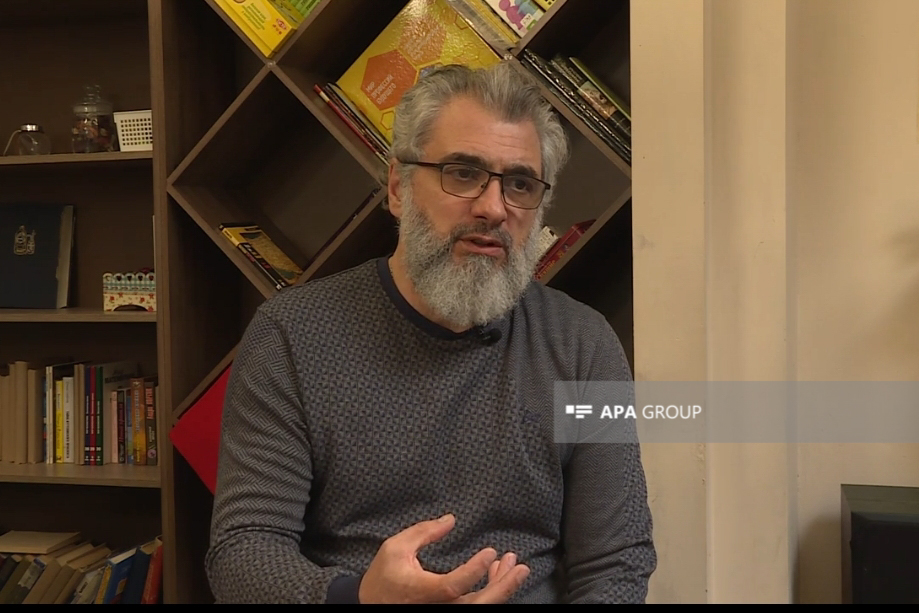
The genocide issue, in reality, is a quagmire for Armenians.
- It seems that it's the Armenian diaspora that is most interested in inflating the issue of the 'Armenian genocide.' In your opinion, what should be the position of Armenians, especially the Republic of Armenia, on this issue?
- Today, no matter what I say, the position of the modern Armenian state and the Armenian diaspora is to elevate everything to a political level. There's nothing to discuss in the Armenian issue. In reality, just pay attention to history. With careful investigation, Armenians themselves will understand that it's not genocide. The question of genocide is a quagmire for Armenians. I say this to Armenians. There's no point in getting into this quagmire now. First, this quagmire needs to be drained. Because if we get into this swamp, we'll simply drown there. This swamp consists of fictitious, deliberately altered terms and concepts. Just like the concept of Armenianness... Armenians were initially a small community, and then suddenly they supposedly made up half of the population of Asia Minor. All this is done on paper, just like television channels do it today.
In history, there has never been a state called Armenia.
- You've touched upon a very interesting point: the concepts of 'Armenian' and 'Armenia'... I'd be interested to hear your opinion on these concepts. Armenians claim that they are an ancient people and that their language and alphabet are ancient. So, who are Armenians?
- What does it mean to be Armenian? When did this concept arise? It arose when there was a need to name a certain group of people. Who needed it? Those who compiled this cosmography. Armenia was the name of a geographical place. But in history, there has never been a state called Armenia. You know, one could talk about this for a long time.
"Armenians often say that they were not a religious community but a nation. In reality, this is not the case. Armenians claim that they had their language and alphabet. The issue with the Armenian language is clear. There is not a single historical fact proving the existence of the Armenian language before the 16th century. To understand this, one needs to read not modern authors but researchers who lived in the Middle Ages. All of them concluded that the Armenian language, when spoken, is identical to Turkish. That is, Muslims and Christians of Asia Minor spoke the same language. Some authors simply referred to this language as Armenian based on the name of the geographical region. Authors of the 17th century unanimously assert that Armenians are not a people but a religious sect.
"The second problem is the alphabet. No alphabet in the world belongs to any nation. Only Armenians claim to have their alphabet. Archives from France, Italy, and other countries show that no nation in Europe and the Middle East had an alphabet at that time. Alphabets belonged only to religious communities and sects. Christian communities living in the Ottoman and Safavid Empires had their alphabets. One of these alphabets is the one used by Armenians today. The alphabet is not a marker for a people, but Armenians think otherwise. This exposes their lie. The alphabet did not belong to the people but to religious communities. The alphabet used by Armenians also belonged to a religious community, and I prove that this alphabet was created in the 16th century.
"The Armenian community was part of the Diascoritz community. The Jacobites, who were part of this community, also had their alphabet. This is a historical fact. Nestorians, another Christian community, also had their alphabet. In short, all Christian communities living in Asia Minor had their alphabets.
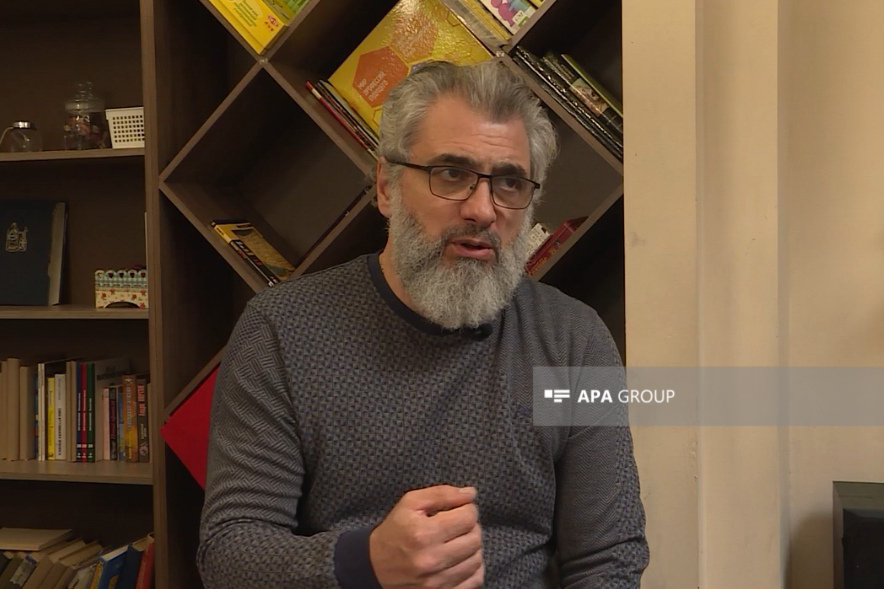
Today's Armenians are descendants of Nestorians, Melkites, and other Christian communities living in this area.
- What can you say about the claim that Peter the Great supposedly mentioned Armenians in his letter to the Safavid Shah?
- As for the question of the freedom of Armenians, it actually refers not to Armenians but to the Nestorians, a Christian community. The word 'Armenian' is not even mentioned in the letter from the Russian Emperor Peter the Great to the Safavid Shah, which supposedly says that 'Armenians need to be protected.' In the Russian version of this letter, Peter used the word 'Christian,' while the Safavid ruler used the word 'Nestorian.' However, for some reason, this story is written as if Peter stood up for Armenians. In short, the numerous Nestorian communities entered history under the name Armenians. The main figures in this story are Israel Ori and Vardapet Minas, whom Meliks, who lived in the Iranian Empire, appointed as their envoys. In other words, there was no Armenian nation in the world. Today's Armenians are descendants of Nestorians, Melkites, and other Christian communities living in this area.
"'Armenian history,' 'Armenian race'—these are all absurd things. I feel ashamed when I hear these words. In reality, these are things designed for an illiterate public.
"I believe that Azerbaijanis, Turks, and Armenians are made of the same dough. It's just that the geographical environment made them different. In 2018, my son and I visited the village of Chikataya, near Erzurum. My grandfather was from this village. It used to be called Chinachur. We visited the house where my grandfather lived and touched the walls and stones of this house. My grandfather left Türkiye in 1915-1916. They were afraid that the Turks might harm the Christian population during Russia's attack on the Ottoman Empire. Someone intentionally spread these rumors. My grandfather and other relatives, a total of 25 families, decided to leave the village. My grandfather said that at that time, no one was intentionally killed. Many people died on the way during the migration. However, not all Armenians left the village. It can be said that more than half of them stayed in the village and still live there. No one touched them. Armenians still live together with Turks there to this day...


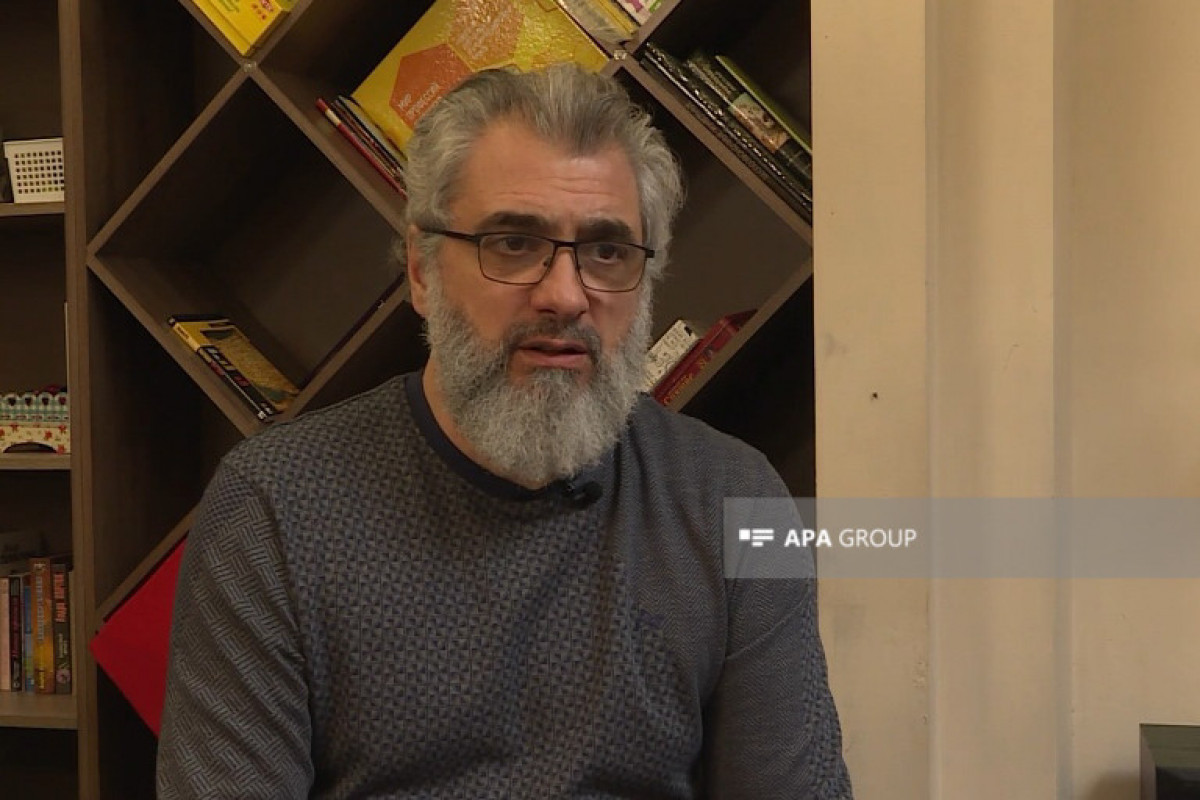
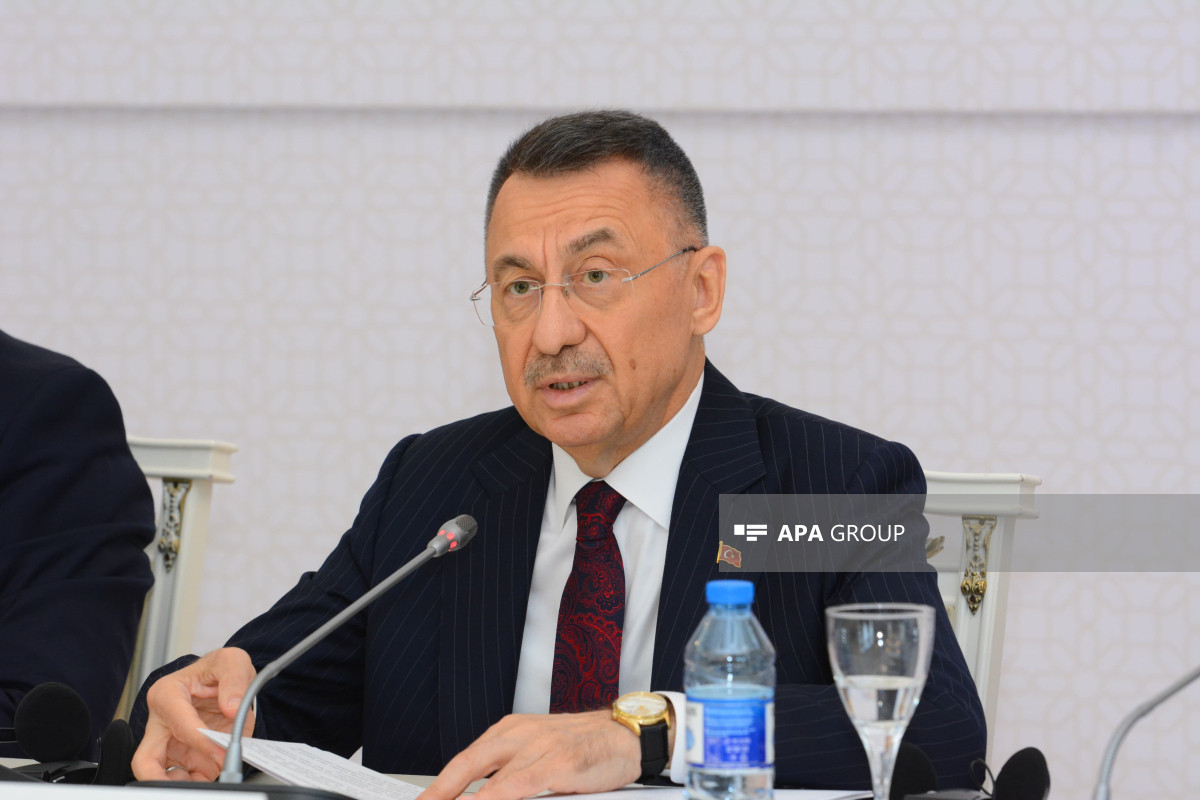
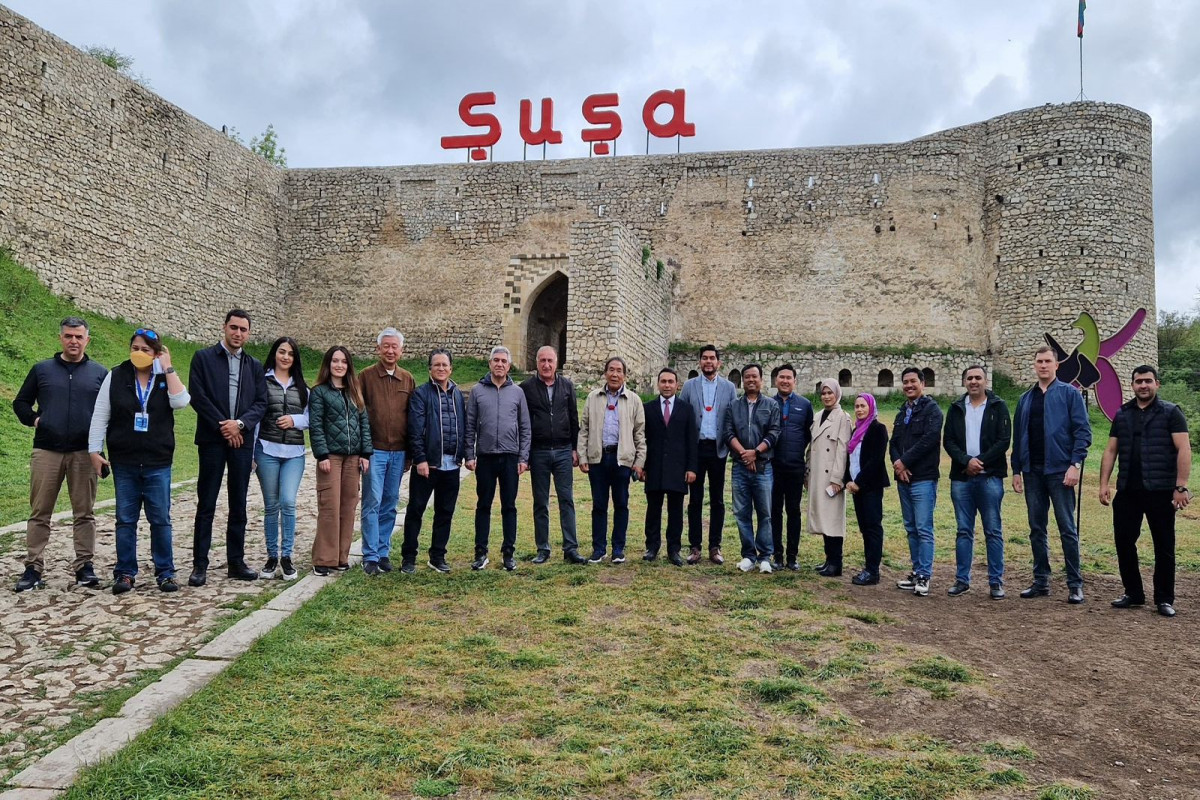 PHOTO'>
PHOTO'>
